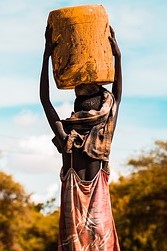How governments and laws abuse children
How expectant couples abuse unborn children
Child abuse is much more than underage’ labor, sexual advances, spanking, discrimination, biases and neglect; it is any form of mistreatment knowingly or unknowingly melted to any human being under the age of 18 years by parents, caregivers, guardians, governments and the society at large.
Governments may abuse children when policies are clearly ‘anti-kids’. Governments with no clear provision for underage basic health, economic and social needs are ‘children abusers’. When the provisions of the laws that protect vulnerable children, like Children Right Act of 2003 are not domesticated in many states talk less of implementation; the law, and the society become strong accomplices in the dastardly act of child abuse. Couple’s poor unhealthy activities in diets, lifestyles and drugs can become unintended abuses on the child in the tommy.
What’s Child Abuse?
Child abuse is culture relative. What we see as proper upbringing or child mending methods, in this clime, might be a very serious problems in another clime.
Childhood is one of the most important stage in a man’s life. This is a time where other people- parents, guardians, relations, teachers, governments and others are expected to take care of children. It’s the stage where a person in Nigeria and elsewhere under the age of 18 cannot take responsibility for actions. It’s the formative age. A stage where what the society inculcate into a child defines the kind of adult the child grows to become.
Our people say it takes a whole village to raise a child. In Africa, including Nigeria, all adults have a responsibility to look after the children in the society, whether those children are theirs or not. However, this communal responsibility is waning in our society today. (A little digression here) The problems of youth and adolescence in Nigeria today are being partly attributed to improper transition from communal model of childhood upbringing.
Child abuse is a severe mistreatment of a child by parents, guardians, or other adults responsible for the child’s welfare. It is a mistreatment that inflicts intentional/ unintentional physical, social psychological or emotional harm on a child.
A child is considered abused if he or she is treated in a way that is unacceptable in a given culture at a given time.
What is viewed as abusive in a society may not be so in another. What we view in Nigeria as perfect and normal upbringing procedure, could send care givers to jail in some countries. Despite the cultural relative nature of child abuse, there are standards in the concept and form of child abuse.
Abuses of children occur everywhere but more profound in the poor countries of the world including Nigeria.
Discipline versus Abuse

Whether it is direct parent, communal/ society, or school setting, discipline is an integral part of child rearing in all cultures and especially in Africa. Discipline means care givers’ efforts at inculcating into the children the right principles of self-control, acceptable behaviors, societal ethos and norms, tolerance, love and sharing.
Our people say spare the rod and spoil the child. Upbringing of child by adults in our climes are often driven by the spirit to mold the vulnerable child to a responsible adult. Hence punishments including beating, pinching, scolding, verbal abuse, shouting, neglect, space restrictions, eye contact reprimand etc are not left out of the molding process. Many of these disciplinary measures are however captured under the child abuse index. So, when does discipline become abuse?
All violent physical and psychological disciplinary measures, according to research, have negative impacts on children’s mental, social and psychological development and therefore constitute abuse of the child.
All disciplinary measures expressed with any trait of anger by the parent and or care giver constitute child abuse. It’s normal for a parent to feel angry and frustrated, but the moment parents and or care giver’s angers drive the form and style of the punishments, rather than the need to teach the child, such measures have slipped to abuse.
Child abuse will occur if:
– child is physically injure, including bruising, broken skin, swelling and or a situation that require medical treatment
– punishment is meant to instil fear rather than to educate the child
-Parents, care-givers, teachers’ losses control
– action is inappropriate for the child’s age
– action results from care-givers unreasonable demands or expectations of the child.
If any of these scenario manifest in your children upbringing styles, then you have crossed the line of divide between child discipline and child abuse.
It is important that parents, care-givers, guardians, school officials watch out for any of these in the course molding children to become responsible adults.
Join us next week for a fresh perspective on Governments / Laws & Society culpabilities in the abuse of children
Source: Dare Agbeluyi, Chief Publisher.
Publisher’s Note:
- Leave your comments in the comments box below and share the post
- Send your health- related articles, stories, tips to compack2006@yahoo.co.ukfor free publication
- Like and share our Facebook page: @citizencomfortng


